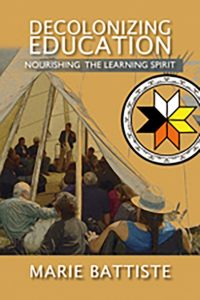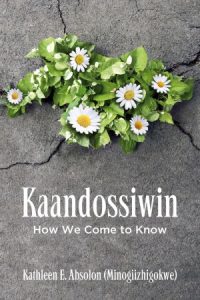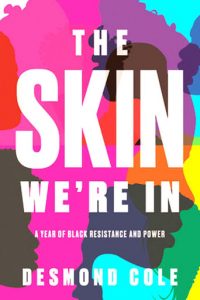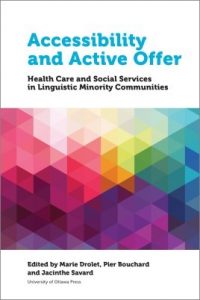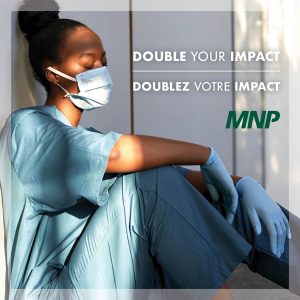Today, the Northern Ontario School of Medicine (NOSM) launches a new Indigenous Health Practitioner Pathway program made possible through a generous donation from RBC Future Launch.
Increasing the number of Indigenous health-care professionals in Northern Ontario is a key part in the provision of culturally appropriate care in the region. The Indigenous Health Practitioner Pathway program is the starting point for Indigenous youth. It will provide educational programming focused on health, life, and human sciences, both in the communities and in larger city centres in the region. The program will educate and introduce youth in the North to the possibility of a career in health care and the opportunity to study, and eventually practise, in their home community.
Dr. Rebekah Neckoway (MD Class of 2013, Family Medicine 2015) is based in Sioux Lookout and travels to remote fly-in communities in Northern Ontario to provide care as far North as Fort Severn First Nation and Eabametoong First Nation. She says this pathway will provide tactile opportunities and role models for Indigenous youth.
“What resonates with me is the hope of providing future generations in First Nation communities with Indigenous family physicians that they will grow up with, who will care for them for years to come,” says Dr. Neckoway. “My hope is that it will remove the ‘visiting’ part from the ‘visiting health professional’ signs that I see in the clinics across the North.”
“When people from First Nations communities go back to their home to work as physicians, they are real, tangible role models and examples of what the rest of the youth can achieve with some hard work,” says Dr. Neckoway. “When I was growing up in Thunder Bay, it took me a long time before I ever met an Indigenous physician—it wasn’t until university. If I had had an Indigenous doctor caring for me as a kid, I wonder if it would’ve improved my self-esteem, or helped curb the shame I used to feel about being Indigenous as a result of the racism I experienced growing up. I am proud to be an Indigenous physician.”
In collaboration with Science North, NOSM has identified 10 rural and remote high schools and five high schools in cities across Northern Ontario where the School will deliver Science Day programming. These high-school students can apply to the CampMed program and be mentored by Indigenous NOSM learners and faculty who may also apply as a professional development opportunity.
“Systemic racism in early education, at the elementary and secondary school levels, has disproportionately disadvantaged Indigenous people, making it even more difficult to get into university and medical school. This pathway is another tool that NOSM is using to address those barriers,” says Dr. Sarita Verma, Dean, President and CEO of NOSM. “We want Indigenous youth to feel embraced by this program and to know that we, at NOSM, care about their future.”
RBC is one of the founding supporters of the Indigenous Health Practitioner Pathway with a funding commitment of $195,000 over the span of three years to assist in funding the establishment of the Indigenous Health Practitioner Pathway program.
These funds will also support professional development and networking opportunities to encourage personal growth and connections to other healthcare professionals practicing in Indigenous communities.
“RBC Future Launch is about empowering today’s youth for tomorrow’s jobs by providing access to knowledge, skills and networks,” says Scott Simon, Regional Vice President, RBC. “We’re excited and honoured to be a part of an ecosystem that NOSM has brought together to help bring these opportunities to high school students in the region through the Indigenous Health Practitioner Program. This is an invaluable program which will help foster Indigenous knowledge and perspectives in health care provided to communities across Northern Ontario.”
There are 96 First Nations communities in Northern Ontario and many other urban and rural communities with large Indigenous populations. This project will support Indigenous youth in any Northern Ontario community.
– 30 –
The Northern Ontario School of Medicine (NOSM) is an award-winning socially accountable medical school renowned for its innovative model of distributed, community-engaged education and research. With a focus on diversity, inclusion, and advocacy for health equity, NOSM relies on the commitment and expertise of the peoples and communities of Northern Ontario to educate health-care professionals to practise in Indigenous, Francophone, rural, remote and underserved communities.
Royal Bank of Canada is a global financial institution with a purpose-driven, principles-led approach to delivering leading performance. Our success comes from the 86,000+ employees who leverage their imaginations and insights to bring our vision, values and strategy to life so we can help our clients thrive and communities prosper. As Canada’s biggest bank, and one of the largest in the world based on market capitalization, we have a diversified business model with a focus on innovation and providing exceptional experiences to our 17 million clients in Canada, the U.S. and 34 other countries. Learn more at rbc.com.
We are proud to support a broad range of community initiatives through donations, community investments and employee volunteer activities. See how at rbc.com/community-social-impact.



